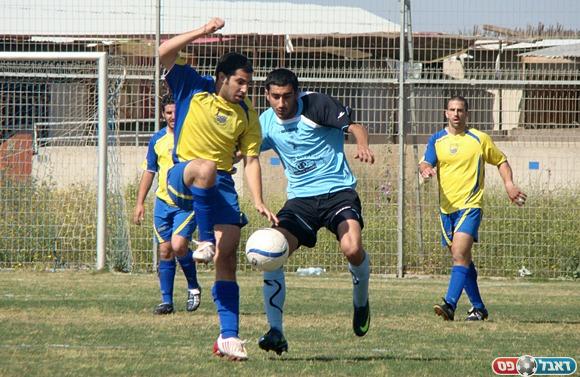By: Leighton Rowell

Georgia football has been the focus of much media attention this year. The first scandal of the season erupted when a newly implemented policy discounted hours graduate students earned as as undergraduates, putting “Double Dawgs” in the back of the ticket line. Next, it was found that too few students attended the games. Then the UGA Athletic Association was exposed for granting the Interfraternity Council blocked seating, whereas other student organizations were left in the dark about the possibility of reserving their own sections in Sanford Stadium.
For the past few weeks, the press has turned its gaze towards UGA fans. Each year, students migrate south to Jacksonville, Fl. for the annual Georgia-Florida game. And each year, those students make a stop along the way in St. Simons Island, Ga. to party on the beach–“Frat Beach,” as the masses have nicknamed it. The weekend of revelry was first called the “World’s Largest Outdoor Cocktail Party” in the 1950s, and the name has stuck ever since.
As ugly as this year’s win was, the game gave fans something to be proud of after several losses.
Yet the reputation of the University of Georgia staggered back to Athens sullied. In keeping with form, approximately 8,000 students trashed East Beach the day before the showdown, despite numerous appeals by the UGA Marine Extension Services and the Georgia Sea Grant. According to a UGA Today press release, “ninety-one volunteers helped collect 5,400 pounds of trash and 500 pounds of recyclables left behind by partygoers” last year. Although this year’s gratuitous festivities apparently did not result in quite as much debris, the amount of litter and the state of the environment left behind were well-documented in a photo that exhibited the damage.
Given that “Georgia’s tides rise and fall between 6 to 10 feet twice a day,” the excessive amount of forgotten waste not only has “far-reaching impacts on Georgia’s coastal ecosystem and marine life,” but also reflects poorly on the University. Glynn County residents are infuriated, and rightfully so. A St. Simons local who commented on The Red and Black’s photo gallery “Party On Frat Beach” wrote “Feel free to trash Athens next year instead of bringing your spoiled, careless entitlement fest to ‘frat beach’ again.” Another commented, “If visitors to Athens left such a scene after home games, I guarantee the University, students, faculty and the City of Athens would not put up with it.”
Unafraid to tell it like it is, these frustrated sentiments seem to reflect the general consensus of Glynn County: that UGA students are indeed entitled and believe someone else should clean up after them. The bigger problem, however, is that this is not a problem unique to St. Simons Island. On the contrary, the sense of entitlement is not confined to a single locale; miles away, back in Athens, both students and visitors trash campus every single home game. And yes, “the University, students, faculty, and the City of Athens” do, in fact, put up with it.
The scene on Myers Quad is not much different from that found after the daylong pre-game for Georgia-Florida. While the ecosystem of an on-campus grass field may not be nearly as unique or as valuable as that of the state’s coast, it is just as disheartening to witness the results of fans’ utter disregard for the environment.
UGA has made too few efforts to discourage littering on game day. Truth be told, the only time one hasn’t seen fans make the Quad their personal wasteland was when ESPN’s College Gameday was on campus for the game against LSU, and that was because five eighteen-wheelers physically prevented them from doing so.
In the past, only the most egregious of offenses have prompted the University to take action. Before UGA took on South Carolina in 2009, fans left approximately 70 tons of trash on North Campus. They also urinated in the historic part of Georgia’s campus. After adding more trash cans to the area and asking fans to cooperate, the University cabinet responded in March 2010 by limiting access to North Campus and prohibiting tailgaters “from bringing tents, kegs, generators, grills and other items to that area on game days.” Just one year later in 2011, rules eased up again to allow fans to “begin tailgating five hours before kickoff and…bring tents to North Campus,” even though fans relocated their “unsavory behavior” to Myers Quad for the 2010 Georgia Tech game, creating a similarly disgusting picture. One would have to assume that the economic benefits of letting the droves have their fun were found to outweigh the costs of damages to the school.
Since then, UGA’s only attempts to prevent post-game litter have been made through increasing the number of trash receptacles in popular areas for tailgating and encouraging fans to leave disposables at home. “There’s still a lot of trash and recyclables in the trash, but this year the Athletic Association really made a big effort to put out more recycling containers and locate them next to the trash cans,” said Andrew Lentini of the Office of Sustainability to The Red and Black in 2012.
As admirable as these initiatives are, room for improvement remains. The best way to lessen the trash is not to “add more trash cans,” as Lentini proposed, although this suggestion gained enough support for the Student Government Association to hold a referendum on increasing the student green fee by $1. Perhaps University Police should step in and actually enforce laws against littering by punishing violators with citations. Maybe the administration needs to establish open container rules. But it is doubtful either of those options would make anyone happy in the long run.
At its core, UGA desperately needs a change in its football culture. Fans must take responsibility for their actions and hold each other accountable. If students and alumni cared about this school half as much as they adored Aaron Murray and Todd Gurley, Hairy Dawg might rise from “Stadium Defender” to campus defender. All football stars eventually move on, but the beautiful campus should be a constant. What a shame that the University of Georgia hosted the first SEC sustainability symposium and is home to the renowned Eugene Odum School of Ecology, yet its faithful fans cannot be bothered to throw their beer bottles in the trash before heading to Sanford Stadium.


